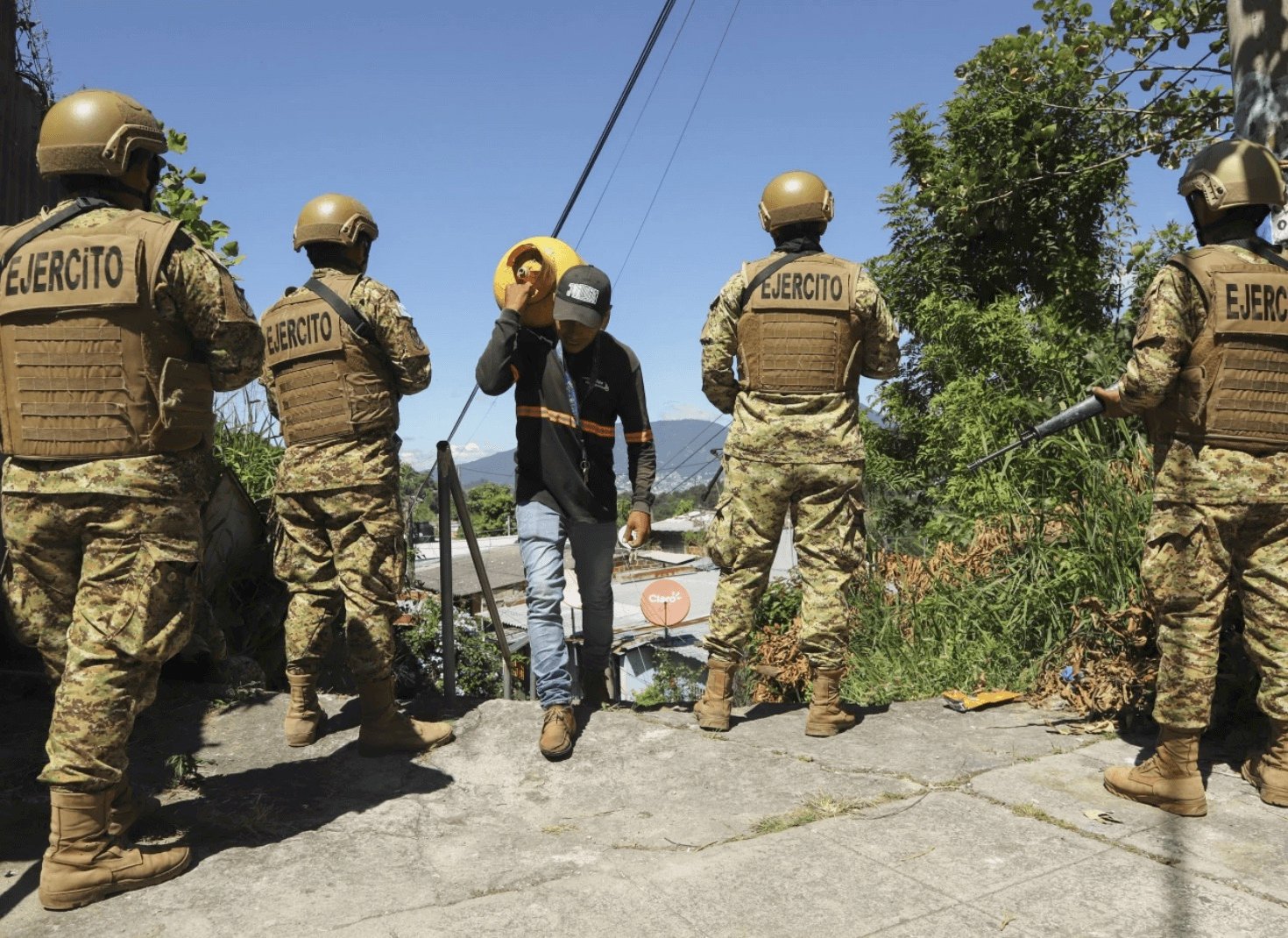In El Salvador, over 2,000 soldiers and 500 police officers recently surrounded the San Marcos neighborhood on the outskirts of the capital to remove remaining gang members, part of President Nayib Bukele’s continued “war on gangs.” Bukele introduced these intense security measures, including military blockades and checkpoints, in response to gang violence, which surged in 2022. His government declared a “state of emergency” that suspended some constitutional rights, leading to the arrest of over 1% of the population.
While Bukele’s crackdown has drawn criticism from human rights groups concerned about prison conditions and due process, it has also significantly reduced crime rates and curbed the power of notorious gangs like MS-13 and Barrio 18. This anti-gang campaign has made Bukele popular among Salvadorans, but his moves to extend emergency powers and seek re-election—despite a constitutional limit on consecutive terms—have raised concerns over democratic practices in the country.






0 Comments